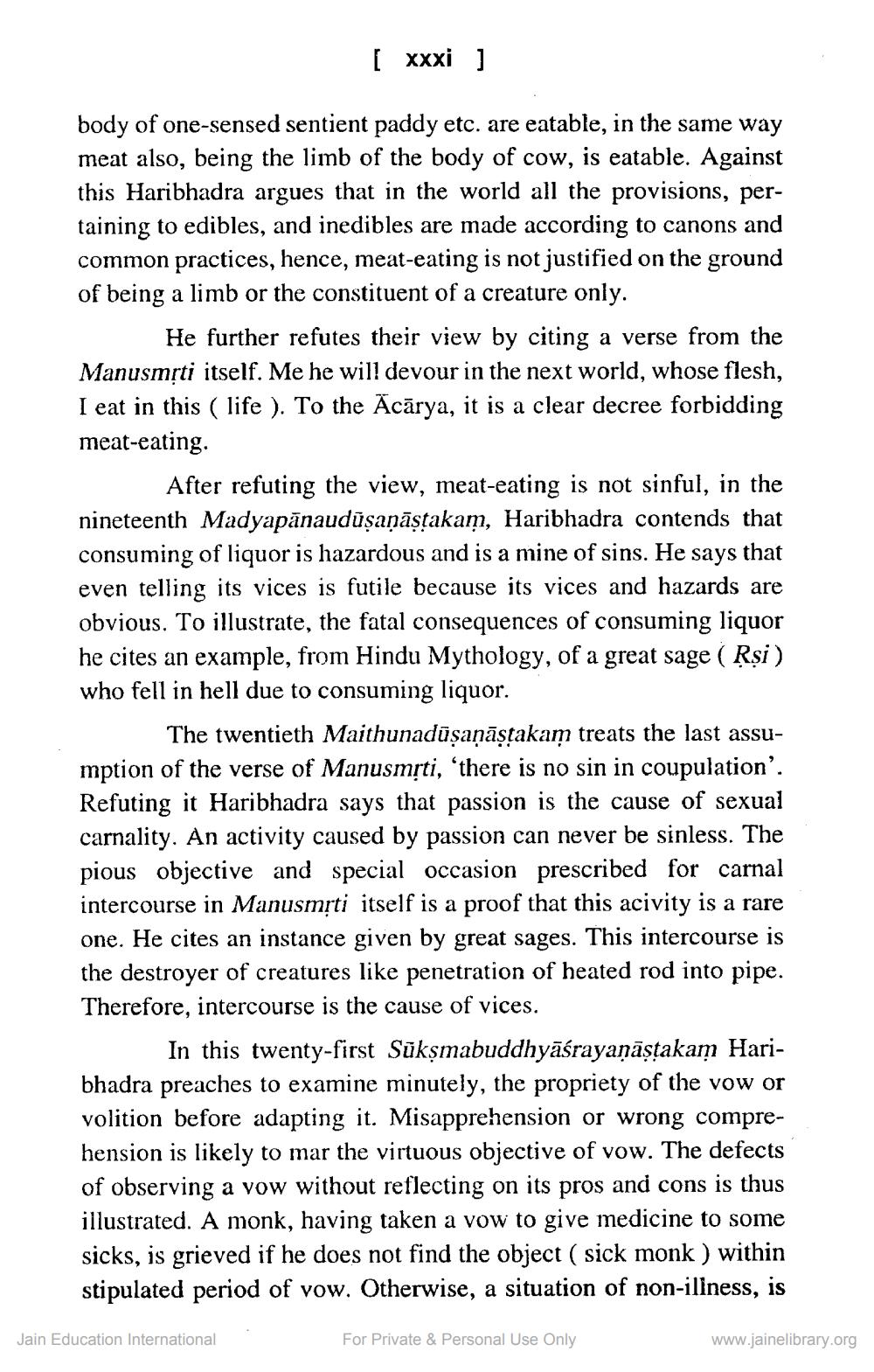________________
[ xxxi]
body of one-sensed sentient paddy etc. are eatable, in the same way meat also, being the limb of the body of cow, is eatable. Against this Haribhadra argues that in the world all the provisions, pertaining to edibles, and inedibles are made according to canons and common practices, hence, meat-eating is not justified on the ground of being a limb or the constituent of a creature only.
He further refutes their view by citing a verse from the Manusmrti itself. Me he will devour in the next world, whose flesh, I eat in this ( life ). To the Acārya, it is a clear decree forbidding meat-eating
After refuting the view, meat-eating is not sinful, in the nineteenth Madyapānaudūsaņāstakam, Haribhadra contends that consuming of liquor is hazardous and is a mine of sins. He says that even telling its vices is futile because its vices and hazards are obvious. To illustrate, the fatal consequences of consuming liquor he cites an example, from Hindu Mythology, of a great sage ( Rsi) who fell in hell due to consuming liquor.
The twentieth Maithunadūṣaṇāștakam treats the last assumption of the verse of Manusmrti, there is no sin in coupulation'. Refuting it Haribhadra says that passion is the cause of sexual carnality. An activity caused by passion can never be sinless. The pious objective and special occasion prescribed for carnal intercourse in Manusmrti itself is a proof that this acivity is a rare one. He cites an instance given by great sages. This intercourse is the destroyer of creatures like penetration of heated rod into pipe. Therefore, intercourse is the cause of vices.
In this twenty-first Sūkşmabuddhyāśrayaņāstakam Haribhadra preaches to examine minutely, the propriety of the vow or volition before adapting it. Misapprehension or wrong comprehension is likely to mar the virtuous objective of vow. The defects of observing a vow without reflecting on its pros and cons is thus illustrated. A monk, having taken a vow to give medicine to some sicks, is grieved if he does not find the object ( sick monk ) within stipulated period of vow. Otherwise, a situation of non-illness, is
Jain Education International
For Private & Personal Use Only
www.jainelibrary.org




